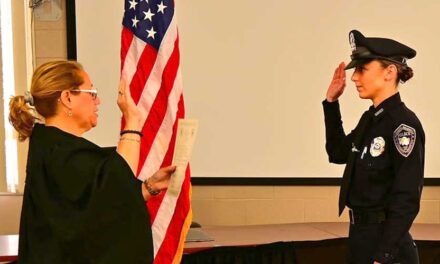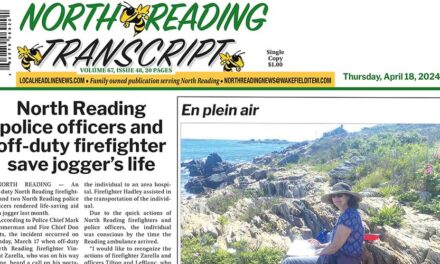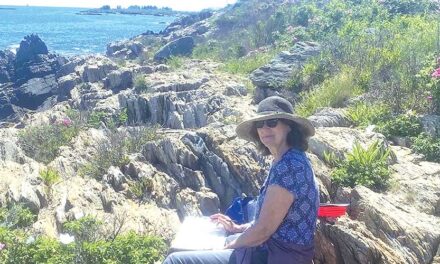Published March 14, 2019
By MAUREEN DOHERTY
NORTH READING —The Public Safety Administration budget would remain level funded with one line item to cover the director’s $30,000 stipend under the proposed budget currently under review as part of the town’s FY2020 budget process.
Established last year after a change was approved by the Select Board in the town’s organizational structure to create the position of a Public Safety Director, the position was funded at $30,000 in the FY19 budget approved by Town Meeting, and $14,654 was spent to fund it through the end of the 2018 calendar year.
The Public Safety Director oversees five departments — police, fire, emergency management, building and health — and reports directly to the Town Administrator. In his presentation to the Select Board March 4, Town Administrator Michael Gilleberto stated that he proposed this position after receiving feedback from the board indicating he should delegate some of his own workload. He then identified critical needs in the town’s public safety divisions that he felt would require a hands-on approach on a day-to-day basis by a “proven public safety manager.”
Among them were numerous transitions in multiple positions in the Fire Department, including the chief, and inspectional services, as well as increased demands being placed on emergency management; the need to evaluate the sustainability of the existing staffing model at the Fire Department; the proposed implementation of a consolidated civilian dispatch model to free up existing police and fire personnel; and addressing the town’s aging demographic and increasing population growth along with growing substance abuse problems.
Ultimately, the person selected to do the job was Police Chief Michael Murphy.
Gilleberto reported progress in numerous areas since Murphy’s appointment as Public Safety Director in the past year, which has enabled the T.A. to focus on other non-public-safety related matters in town:
• Oversaw hiring of both the Building Commissioner and assistant plumbing inspector
• Streamlined processes among public safety departments and liaison to town counsel
• Established the structure for and implemented regular public safety meetings among public safety departments to review their consistency
• Conducted a budget review and analysis of all public safety departments in FY18, FY19 and FY20
• Reviewed and made recommendation on new Board of Health policies
• Made recommendations to coordinate Board of Health and Building Department requirements on building permits
• Assisted multiple town departments in evaluating a new permitting software system. Through the Town Planner, the town received an $85,000 grant to fund the majority of this software
• Opened negotiations with the Police Union on civilian dispatch
• Provided ongoing guidance in the hiring and promotional processes in the Fire Department
• Reviewed and made recommendations to Department Heads to ensure staffing levels were adequate to meet public safety requirements, including contracted services; supported the Fire Chief in implementing procedure and policy changes within the department; conducting ongoing review of options for the enhanced delivery of Fire Dept. services.
• Assisted the Fire Chief in the administration and enforcement of collective bargaining agreement, personnel policies and personnel management
• Assisted the Fire Chief and T.A. in resolving an ongoing false alarm response
• Recommendation and installation of new programming at the Fire Dept. similar to the Police Digital Headquarters.
Future workload
In the coming year, the T.A. stated that the Public Safety Director will continue to:
• Refine the role of the new mental health clinician, including greater coordination with the Health Department’s public health nurse.
• Integrate new resources/strategies for service delivery in both Building and Health departments
• Establish civilian dispatch for the Police Dept. as outlined in the FY19 budget; develop a plan to expand this model to the Fire Dept.
• Address continued challenges with the Fire Dept., including: increased OT costs, increasing call volume/public expectations; trends in work-life balance, residence and availability of personnel; planning for additional growth related to subdivisions, Edgewood and Pulte Homes; respond to aging demographic resulting In potential increased call volume.
• Continued leadership development with the Fire Dept.
Select Board member Andrew Schultz asked Gilleberto if he had seen an “appreciable” difference in the management of his own duties. “When we were putting this position together one of the objectives was to take things off your plate,” Schultz said.
Gilleberto responded that it “certainly” has taken away some of his previous oversight and management workloads, and that time has been “backfilled” with other tasks, such as “the strategic end of things and I think some of that is coming through the budget process here at the department level.”
“I have been able to get to more of those initiatives over the past year than was case prior,” Gilleberto said.




